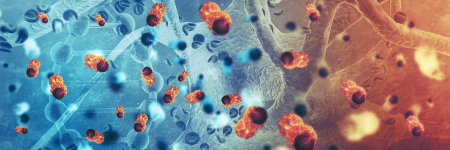Updates on key developments in genomics

GeNotes: Supporting clinicians with the genomics revolution
We explore the collaborative approach behind, and design of, the programme’s flagship genomics education resource

Six benefits to helping your patient access genetic counselling
For #GCAwarenessDay 2024, NHS genetic counsellor Lily Barnett makes the case for why healthcare colleagues should make use of that profession’s expertise

Why genomics? 'Origin stories' from the professionals
Hear why five members of the Genomics Training Academy (GTAC) team chose to pursue careers in genomics

Three career tips for clinical scientists: a conversation with Chris Watt
An NHS clinical scientist shares about his career journey, advice for newcomers and highlights from his work in cancer genomics training

AI can improve DNA analysis, eliminating need for additional test
Artificial intelligence (AI), when applied to exome sequencing data, may help to detect disease-causing copy number variants, say Cambridge-based researchers

Three career tips for bioinformaticians: a conversation with Fern Kirkham
Pointers for fellow bioinformaticians from Fern Kirkham, who also works as a clinical scientist and educational specialist for GTAC.

NICE approves genomic test to prevent secondary strokes
We report on a new test that will help clinicians determine when clopidogrel may harm instead of help

Three career tips for genetic technologists and scientists: a conversation with Alison Taylor-Beadling
Hear from Alison Taylor-Beadling – principal clinical scientist, laboratory training lead and GTAC education specialist – whose storied genomics career has spanned over two decades

In vivo and ex vivo gene therapies explained
Gene therapies can take place either 'in vivo' or 'ex vivo'; we compare these two approaches and their importance in gene therapy

Career tips for genetic technologists and scientists: a conversation with Jennie Bell
Career advice for new genetic technologists and scientists from genomics lab director, consultant clinical scientist and GTAC professional lead Jennie Bell

Our genomic future
Three experts consider the direction of travel for genomics — and the projects that will help us get there

Professional journeys into genomics: A long and winding road
In this final instalment of our 2024 Genomics Conversation blog series, we ask Amy, Bernadette, Jessica, Marianne and Tobi how they feel about the future of genomic medicine

From patient to advocate
Helen White tells us how her own diagnoses compelled her to carve a path in representing others

Professional journeys into genomics: Delving deeper
In the second part of our blog series for this year’s Genomics Conversation, our group of NHS healthcare professionals explains the power of genomics education in their practice

Professional journeys into genomics: Taking the first step
In this blog series for the 2024 Genomics Conversation, NHS healthcare professionals from medicine, nursing, pharmacy and midwifery share their inspiring genomics journeys

Genomics on the front line: GLHs and GMSAs
The scientific and clinical arms of the Genomic Medicine Service have made a huge contribution to the journey of genomics in the NHS

Genomic technologies: where are we now?
Our ambitions for our patients are only as good as our methodologies. We take a look at the technology that underpins the revolution

How far we’ve come, how far we’ll go: 10 years of the GEP
The Genomics Education Programme (GEP) began in the summer of 2014 with big dreams, a small team, and a lot of work to do

Career tips for clinical geneticists: a conversation with Dr Alex Murray and Dr Rhian Thomas
Dr Alex Murray and Dr Rhian Thomas – GTAC clinical genetics professional lead and education specialist, respectively – offer advice for early-career practitioners

New bowel cancer screening launches for Lynch syndrome patients
Thousands of people in England at risk of bowel cancer will benefit from world-first preventative programme

Three career tips for genetic counsellors: a conversation with Dr Laura Boyes
Dr Laura Boyes, consultant genetic counsellor and GTAC genomic counselling professional lead, shares advice for new and aspiring practitioners


